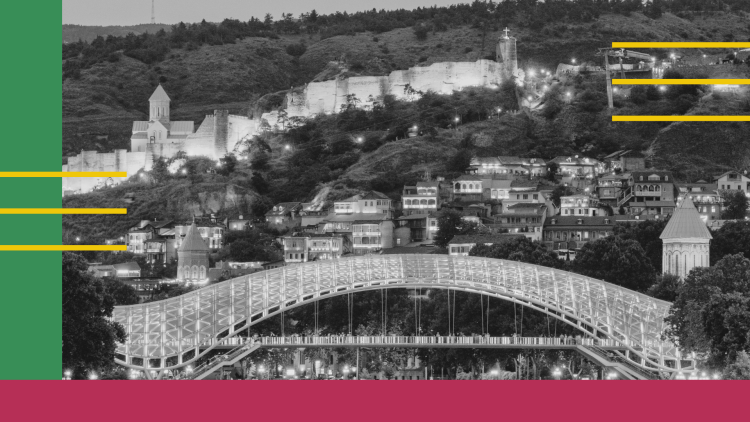
The harmful legislative proposals covered in previous CSO Meter updates have been adopted in the third and final reading. These include the controversial Georgian Foreign Agents Registration Act, amendments to the Broadcasting Law, and other measures widely seen as undemocratic. While some provisions will take effect immediately, others will be enforced 60 days after Georgian Dream (GD)-backed President Mikheil Kavelashvili signs them into law. The actions taken by GD against civil society are increasingly shrinking the space for critical opinions and jeopardising people’s European aspirations. The laws enacted by the GD party have been criticised by numerous international institutions.
Laws widely criticised as undemocratic
On April 1, without a single dissenting vote, the GD-controlled parliament swiftly approved a series of restrictive laws and amendments, including the so-called Foreign Agents Registration Act (FARA), and the Broadcasting Law, which prohibits foreign funding of the media, the removal of gender-related provisions, and the elimination of the requirement to include civil society organisations (CSOs) in the decision-making process.
The laws were criticised in a joint statement by European Commission Vice President and High Representative Kaja Kallas and European Commissioner for Enlargement Marta Kos. According to the statement, these steps further erode the foundations of democracy in Georgia, such actions are fundamentally incompatible with EU values of democracy, rule of law and media pluralism. More specifically, the adopted amendments directly contradict Step 9 of the 2023 Communication on EU Enlargement Policy issued by the European Commission, which was considered when Georgia was granted candidate status and pertains to the free functioning of the media and civil society. By taking this course of action, the country risks deepening its isolation on the global stage, potentially straining its relationships with key Western allies and diminishing its chances of progressing toward European and transatlantic cooperation.
The OSCE Human Rights Office also criticised FARA, describing it as a setback for civil society. ODIHR Director Maria Telalian stated, "This law profoundly impacts the work of civil society and all those working to defend human rights." According to an ODIHR statement, the adopted law raises concerns that it will hinder the rights to freedom of association, peaceful assembly, and expression.
Notably, while the U.S. State Department's position—issued a day after the laws were passed in response to a media inquiry—does not explicitly address their adoption, it characterises the steps of the GD as “continuing anti-democratic actions.” Additionally, the day after the laws were enacted, the United Kingdom imposed sanctions on Georgian judges Mikheil Chinchaladze and Levan Murusidzen. According to Georgia’s fifth president, Salome Zurabishvili, the international reaction represents "a very big blow to the regime."
People’s fundamental rights to speak out and protest under attack
The restrictive legislation adopted by the GD is aimed at further demonizing and restricting civil society and the media. The adopted laws are a continuation of the course that the GD began back in 2023 with the first initiative of the Law on Transparency of Foreign Influence, which still remains in place.
The adopted laws impose significant restrictions on essential rights, including the rights to association, expression, press, and peaceful assembly. These measures severely limit the ability of individuals and organisations to freely organise, communicate, and engage in public discourse. More analysis on the FARA Law and the Broadcasting Law are available here.
Moreover, the adoption of these laws restricts the ability of CSOs, media, and activists to operate freely, as they face potential harassment and legal consequences for their work. For example, CSOs, including those focused on gender equality or LGBTQ+ rights, shall struggle to operate and advocate. Media outlets will be silenced or restricted from covering critical issues, and they will likely face significant financial challenges, as a large portion of independent media in Georgia relies on donor funding.
Civil society expects that the hostile policies of the GD will continue, to apply further restrictions.
In response, a number of Georgian CSOs plan to pursue legal action, and after exhausting local legal procedures, they aim to bring their case before the European Court of Human Rights.
In light of the current restrictive trends in the country, advocacy groups must persist in pursuing legal challenges, exerting international diplomatic pressure, and running public awareness campaigns. Strengthening consolidation and unity among CSOs is also essential.
